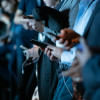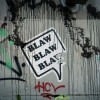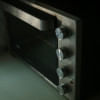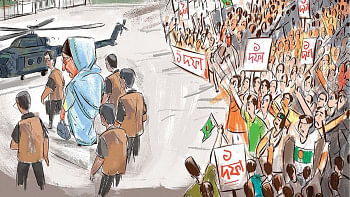Table manners 101: Dining etiquettes explained

Table manners are important because in a civilised society, poor dining etiquette can create a poor impression of you at social gatherings and social business situations. Even when you are eating at a restaurant surrounded by strangers, table manners are important, because you do not want to irritate others with your poor manners or invite stares from patrons sitting at the next table.
Poor table manners can create a poor impression of you even at informal family gatherings; think about extended family and in-laws. Having said that, not all of us were raised the same way. While many of us learned table manners from our families when we were children, not all of us had the same opportunity.
Perhaps, our parents were overwhelmed with work and other responsibilities; were not around when we needed them most, or they themselves did not know enough about table manners to teach us. Dining etiquette, however, is not rocket science and can be learned anytime, at any age. Once you have learned and practised your table manners for some time, you will follow them instinctively, even when you are eating alone!
Not chewing with our mouths open is just one of the very basic table manners that we need to remember when eating in the presence of other people. Basic table manners are simple, universal, and easy to remember and follow.
Come to the table with a clean face and hands
Washing hands before eating is something almost all of us were taught as children. When you will be sharing the table with other people, come to the table not only with clean hands but a clean face and mouth as well.
Do not speak with your mouth full
Swallow your food first and then say what you have to say. It is unpleasant to the sight when people speak with food in their mouths. It is likely that you will also spit some of that uneaten food when you try to speak with your mouth full.
Do not slurp liquid
Yes, every drop of that soup or daal may be delicious, but please do not slurp. The sound of slurping is not only unpleasant but also considered a sign of poor manners. The same goes for drinks; coffee, tea, juice, water, lassi — you name it!
Wait for others to come
Do not start eating as soon as you have taken your seat. Wait for others to arrive and wait until everyone has been served. Also, do not finish your food quickly and leave the table before others are done eating. You are not participating in an eating contest! Keep pace with other diners.
Use bone dish/ plate
Never place or throw bones and other food waste on the table. It is a no-no! Use the bone plate. If a bone plate was not provided, use a side plate. In the absence of a side plate, ask for one!
Do not lick cutlery
Yes, we understand you loved that chocolate ganache cake or that sauce in which the pasta was cooked, but do not lick your spoon or fork to show appreciation. Your tongue should be inside your mouth, especially when you are sharing a table. I would not mind licking a spoon or a fork when I am eating alone, but never in the company of others!
Do not burp
Excuse yourself if you have to burp; do not burp at the table. In a public place or a professional setting, this would instantly create a poor impression of you.
Keep your arms and legs to yourself
I have seen people who stretch their legs under the table while eating, so much so that the diner across the table cannot sit comfortably. Keep your legs to yourself when sharing a table. The same with your arms. Some people tend to stretch their arms after a good meal, do not do that; you could be annoying or causing discomfort to the diner/s sitting next to you.
Put your phone away
Cell phones are our biggest distraction in the modern world. When eating in the company of other people, do not call, text, check email, or browse social media. Focus on your food and your companion/s only.
Not a cutlery concert please
It is poor manners to clink and clank with a spoon, fork, and knife at the table. Also, do not scrape cutlery against your teeth. The sound of a spoon scraping against teeth makes many people, including myself, lose their appetite for the day!
Right or left hand?
One more thing about cutlery, hold the fork in your left hand and the spoon or knife in your right hand. If you will be using only one utensil to eat, for instance, pasta or chow mein, then feel free to hold the fork in your right hand.
Use napkins
At a restaurant or formal event, place the napkin on your lap before you start eating. Use your napkin (paper or cloth) to gently wipe your mouth from time to time as you enjoy your meal.
Use the napkin, if you have to cough or sneeze in the middle of your meal.
Help clear the table
You will not need to do this at a restaurant or in a professional setting. However, if you are invited to someone's place, offer help. At home, help your spouse or mother to help clear the table. Teach your children to do the same. You can offer help to your domestic helps as well.
During my Dhaka visits, I consciously carry my plates and bowls to the kitchen after eating. I can see in the eyes of our helping hands how much they appreciate this little gesture of kindness.
The above-mentioned pointers are some of the very basic table manners followed across cultures. The world is increasingly becoming globalised; we now travel for work and pleasure more than ever before. In such an interconnected world, where we are always meeting, drinking, and dining in the presence of known and unknown faces at home and abroad, leaving a good impression is imperative to attaining long-term success and becoming the best version of oneself.

 For all latest news, follow The Daily Star's Google News channel.
For all latest news, follow The Daily Star's Google News channel. 








Comments